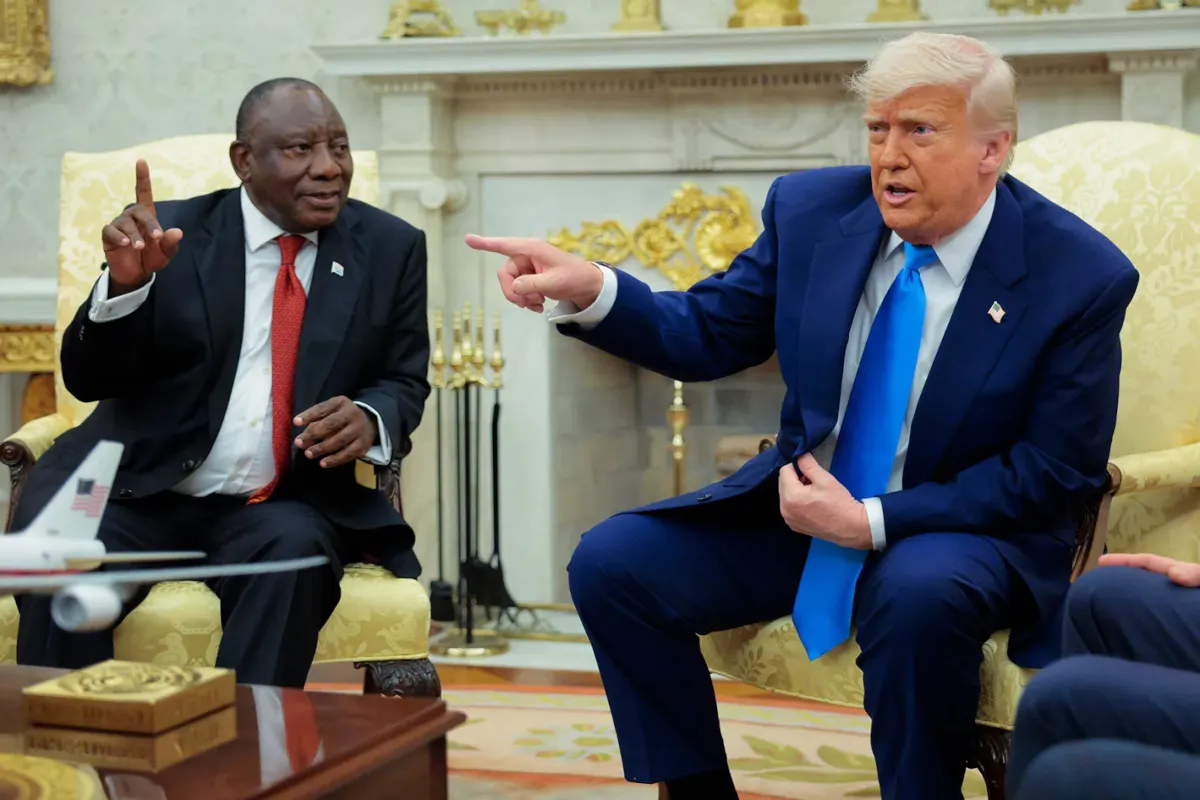
South African officials return to the US to negotiate a trade deal
President Cyril Ramaphosa confirmed that South Africa has sent senior government officials to the US to prepare for formal trade talks.

President Cyril Ramaphosa confirmed that South Africa has sent senior government officials to the United States to prepare for formal trade negotiations after weeks of rising tensions and steep US tariffs on South African imports.
Speaking to parliament on Tuesday, Ramaphosa said the delegation, which includes representatives from the Presidency and the Department of Trade, Industry and Competition, is meeting with US administration officials, lawmakers, and business leaders in New York and Washington.
The move follows Trump’s decision last month to impose a 30% tariff on South African goods, citing unresolved trade disagreements and what the White House has described as a lack of cooperation from Pretoria.
Months of Deadlock
South African officials say they submitted multiple proposals to prevent the tariff hike, including a revised trade deal presented a month ago, but Washington has not provided any formal response.
Ramaphosa told lawmakers that the tariff decision came “despite South Africa’s consistent efforts to negotiate in good faith.”
“We are preparing for further formal negotiations… which should be taking place in just a few days,” Ramaphosa said.
The US Trade Representative (USTR) has not specified when the negotiations will take place or what they will cover.
Focus on Critical Minerals and Value Addition
Ramaphosa highlighted that South Africa’s critical mineral reserves, such as rare earth elements, platinum, and lithium, play a key role in its negotiating strategy.
He stressed, however, that the country aims for value-added trade instead of merely exporting raw materials.
“Even as we may well want to export the critical minerals, we want them to leave the shores of South Africa as finished products,” Ramaphosa said.
This position aligns with South Africa’s broader industrial strategy, which aims to boost local beneficiation and job creation through downstream processing.
Wider Diplomatic Tensions
The trade dispute has emerged amid increasing diplomatic tensions between the two countries.
President Trump’s controversial refugee programme for white South Africans, based on unverified claims of racial persecution, has strained the relationship and faced strong opposition from the South African government.
US officials have also criticised South Africa’s affirmative action laws, which aim to address apartheid’s legacy.
South Africa’s Agriculture Minister John Steenhuisen said last month that addressing these US concerns could become necessary within the broader negotiation framework to secure tariff relief.
Outlook
As negotiations approach, both countries face political and economic pressures. South Africa aims to protect its export competitiveness in agriculture, mining, and manufacturing, while the Trump administration continues to leverage tariffs as part of its broader “America First” trade strategy.
It remains uncertain whether this round of talks will produce a resolution.
